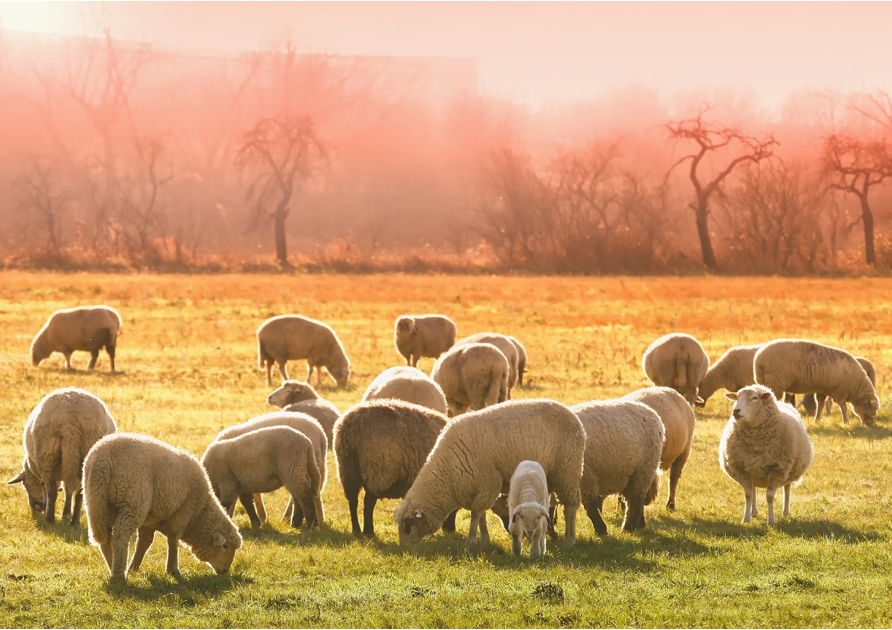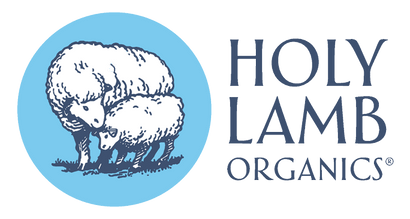Add description, images, menus and links to your mega menu
A column with no settings can be used as a spacer
Link to your collections, sales and even external links
Add up to five columns
Add description, images, menus and links to your mega menu
A column with no settings can be used as a spacer
Link to your collections, sales and even external links
Add up to five columns
Quality Assurance, From the Field to the Mill
August 19, 2025 3 min read

We’ve told you before about our heritage wool mill and the Oregon and California ranchers who raise the sheep for their signature premium eco wool. We’ve talked about GOTS, the certifier of our organic wool, which comes from New Zealand and is processed at the same mill. In both cases, ranchers employ best practices that meet the highest standards of compassion and sustainability, and the mill treats the wool with care every step of the way. Everything happens with a focus on keeping the sheep happy and healthy and ensuring the integrity of the final product.

It All Starts at the Farm
Let’s look at organic wool first. Sheep ranchers have to follow GOTS standards for three years before completing their certification and producing wool that can carry the GOTS label. The sheep graze outdoors throughout the year, and grazing makes up a substantial portion of their diet. The land is managed naturally—no herbicides or pesticides. The health of the animals is also managed naturally, utilizing holistic veterinary practices to prevent disease—no synthetic hormones or parasiticides. When shearing time comes, skilled professionals efficiently remove the wool with minimal stress to the sheep.

On to the Mill
After the shearing, each batch of wool is assigned a lot number and tracked to enable verification of organic practices along its journey. Once at the mill, the wool is placed in a dedicated holding area reserved for organic products, preventing any cross contamination with non-organic materials. The mill preps for two days before running the organic wool; production is stopped, and a team of cleaners removes all unwanted materials and debris from the processing area. The wool is scoured using a natural, biodegradable soap and carded multiple times. Carding loosens and releases any debris, dirt, and vegetable matter without stripping the fibers or removing the remaining lanolin. The end product is a lofty, super clean, resilient batting
Though it doesn’t carry the official GOTS certification, all-natural premium eco wool follows a similar journey, with ranchers maintaining the same sustainable land and veterinary management standards and the mill utilizing the same natural processing methods. Just like its organic counterpart, premium eco wool is a fluffy, refined wool batting that reflects the careful attention of the ranchers and millers.

Don’t Worry, We Don’t Do This
We love highlighting the positive and don’t like to dwell on the negative. But it’s worth taking a moment to look at some of the less eco-friendly methods still practiced by some in the wool industry. Knowing what we don’t do puts our chosen approach into perspective.
- Bleaching – Fibers are often bleached and dyed to achieve the purest whites and brightest colors. Our batting retains the natural color of the wool.
- Harmful Shearing – The shearing crews we use are pros and know their stuff, making the process as quick and stress-free as possible.
- Dipping – At some farms, sheep are bathed in a pesticide solution. Our ranchers use a holistic, chemical-free approach to pest control.
- Overgrazing – This practice is harmful to the land and promotes the encroachment of invasive plant species. Our flocks are rotated throughout the pastureland, and the number of sheep is maintained at a level the land can support.
- Mulesing – To discourage infection and fly infestation, patches of skin are cut from the hide of sheep. None of our ranchers ever have or ever will engage in this; they use humane, holistic methods to keep the animals healthy and parasite free.
- Carbonizing – Wool fibers are dipped in a strong acid solution to dissolve residual vegetable matter. We use a carding process in combination with washing in a biodegradable solution to achieve the same end with no detrimental effects.
- Chemical Crimping – Carbonizing can result in unnaturally straight fibers; to give the fibers the look of a more natural, coiled structure, they’re given a chemical “perm.” Since we don't carbonize, there's no need for this.
It’s All Good
Enough of the bad stuff. As you can see, we have choices when it comes to where we source our wool and how it's treated, and we always choose what's best. Best for the animals and the people who raise them, for the land, and, ultimately, for the people who purchase our products.

References
Organic Trade Association, Organic Wool Fact Sheet
Also in news

How to Choose a Mattress
August 19, 2025 2 min read

The purchase of a new mattress is a big decision, one you’ll want to live happily with for years to come. It’s said we spend a third of our lives in bed, so when you make your choice, you want to get it right the first time.
Subscribe
Sign up to get the latest on sales, new releases and more …
